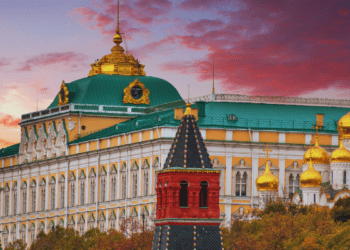

By Dwight Newman, May 30, 2017
Recent reports that a number of First Nations plan to challenge the Liberals’ oil-tanker ban off the coast of northern British Columbia open a new front in relations with the federal government.
Contrary to frequent perceptions, many First Nations are proponents of resource development, so long as it is done responsibly. And the Liberal tanker ban disrupts a major aboriginal-led business project – the proposed $14-billion Eagle Spirit Energy pipeline from Fort McMurray, Alta., through northern British Columbia to the coast.
Although there is some controversy on the exact level of support from each community, the Eagle Spirit Energy project claims the backing of the chiefs of every First Nation along the route, many of whom vastly prefer a pipeline to rail transport of oil products.
The project is a potential game-changer in terms of how governments and courts need to think about aboriginal rights claims.
Arguments grounded in the duty to consult or in the underlying aboriginal and treaty rights have typically been used to resist the development of projects that could have adverse effects on aboriginal lands and traditional practices.
What the potential new challenge raises – as did concerns expressed by the many aboriginal communities that were equity partners with Enbridge Inc. and wanted the Northern Gateway pipeline approved – is the prospect of communities putting forward rights claims that are oriented to development, rather than to stopping projects.
The project is a potential game-changer in terms of how governments and courts need to think about aboriginal rights claims.
They may frame these claims directly in terms of an aboriginal right to economic development. Such a claim is untested, and it is still unclear how it would fare. Or they might argue based on a right to make decisions about aboriginal lands or traditional territories. They would simply argue that the decision they have made is to carry out resource development, with the federal and provincial governments now to get out of the way. That claim would use existing law, but turn it toward a new application.
At some point, these arguments will end up in the courts, either directly as rights claims or as claims that there ought to have been consultation on potential effects on such rights. And the very presence of these arguments will overturn the expectations of many who think they have liberal views but actually have ongoing paternalistic views that assume First Nations always need protection from development.
As these issues make their way forward, the legal questions will be to what extent the courts are ready to recognize rights that let First Nations move forward in modern, contemporary ways. Recognizing rights to traditional practices has offered certain protections to First Nations, but also tends to lock them into historical patterns.
The exciting but challenging part about these upcoming issues is that they call on the courts and governments to recognize aboriginal rights in ways that are dynamic and that find ways toward forward-looking reconciliation. There will be challenging choices on the ways to articulate the scope of these rights to find just relations between aboriginal communities and Canadians generally.
The exciting but challenging part about these upcoming issues is that they call on the courts and governments to recognize aboriginal rights in ways that are dynamic and that find ways toward forward-looking reconciliation.
But if we can get the balances right, these sorts of rights claims offer the prospect of supporting modern Indigenous economies and of going far in getting more Indigenous communities more autonomy and more freedom from the Canadian state.
Although these sorts of claims have received only limited attention thus far, they are a key development to watch. They represent a real challenge to status quo assumptions. They will shake things up. But they may offer Canadian aboriginal communities some dynamic paths forward. And they may do a lot in terms of fostering longer-term reconciliation.
Dwight Newman is a senior fellow at the Macdonald-Laurier Institute and Canada Research Chair in Indigenous rights at the University of Saskatchewan.




